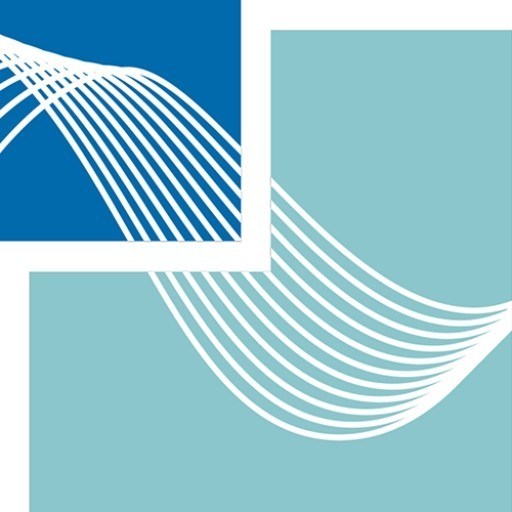Photos of university / #americanpublicu
The Bachelor of Arts in Management (Public Administration) at American Public University is a comprehensive undergraduate program designed to equip students with the fundamental skills and knowledge necessary for effective management and leadership within public sector organizations. This program emphasizes the development of critical thinking, problem-solving, and communication skills essential for managing complex public administration environments. Throughout the course of study, students are introduced to core concepts such as public policy formulation, organizational behavior, governmental processes, budgeting and financial management, ethics, and law pertaining to public administration. The curriculum integrates theoretical frameworks with practical applications, preparing graduates to serve in various roles within government agencies, non-profit organizations, and other public institutions.
Students will explore topics such as public sector ethics, policy analysis, strategic planning, human resource management, and community engagement. The program also emphasizes the importance of ethical leadership, transparency, and accountability in public service. Through a combination of coursework, case studies, and practical projects, students gain a solid understanding of how public organizations function and how to effectively manage public resources to serve community needs. The online format offers flexibility for working professionals and those with other commitments, allowing students to tailor their studies around their schedules. Upon completion of the program, graduates will be prepared to pursue careers as public administrators, policy analysts, city managers, program coordinators, and other roles within the public sector, contributing positively to society and fostering sustainable community development.
The Bachelor of Arts in Management (Public Administration) at American Public University is designed to equip students with a comprehensive understanding of the principles and practices involved in governing public sector organizations. The program aims to prepare graduates for leadership roles within government agencies, non-profit organizations, and other public institutions by providing a solid foundation in management theories, public policy, administrative law, and organizational behavior. Throughout the coursework, students explore the complexities of public administration, including budgeting and finance, ethical considerations, strategic planning, and effective communication skills necessary for successful management in the public sector.
The curriculum emphasizes both academic knowledge and practical application, ensuring that students gain critical thinking and problem-solving abilities relevant to real-world public administration issues. Courses cover topics such as the structure and functions of government, policy analysis, public program evaluation, and the use of technology in public management. Students are encouraged to develop leadership skills, understanding the importance of transparency, accountability, and community engagement in effective governance. The flexible online format allows working professionals and aspiring public administrators to study at their own pace, balancing education with other commitments.
In addition to core management and administrative training, the program includes specialized coursework in areas like nonprofit management, urban and regional planning, and public finance. Students are also given opportunities for experiential learning through case studies, simulations, and practical projects that mirror the challenges faced by public administrators in diverse environments. The program culminates in a capstone project where students demonstrate their ability to analyze complex public administration issues and develop strategic solutions.
Graduates of the Management (Public Administration) program will be well-prepared for careers in local, state, or federal government, healthcare organizations, educational institutions, or nonprofit agencies. They will possess the skills necessary to implement policies effectively, manage public resources responsibly, and contribute positively to their communities. With an emphasis on ethical leadership and innovative management practices, the program aims to develop public sector professionals who are committed to serving the public interest and fostering sustainable development.
Program requirements for the Bachelor of Arts in Management (Public Administration) at American Public University include a combination of general education, core management courses, and specialized coursework in public administration. Students must complete a total of approximately 120 credit hours to graduate, which encompasses liberal arts and sciences prerequisites, essential management principles, and field-specific knowledge. The curriculum is designed to develop skills in leadership, organizational management, policy analysis, and public sector ethics. Incoming students are usually required to have a high school diploma or equivalent and may need to submit transcripts for evaluation. During the program, students are expected to engage with both theoretical frameworks and practical applications through assignments, case studies, and internships where applicable. The program emphasizes critical thinking, effective communication, analytical reasoning, and ethical decision-making in the context of public administration. Students should complete core courses such as Introduction to Management, Public Administration Principles, Organizational Behavior, and Policy Development. Electives allow for specialization areas like nonprofit management, local government, or public finance. To ensure academic progression, students must maintain a minimum GPA as specified by the university, participate actively in discussions, and complete all assignments by deadlines. Capstone projects or comprehensive exams are usually part of the final semester, demonstrating comprehensive understanding of the field. The flexible online format requires students to dedicate sufficient time for study, actively participate in virtual discussions, and utilize university resources such as academic advising and tutoring. Overall, program requirements aim to prepare graduates for leadership roles in public sector organizations, nonprofit agencies, or related fields by providing a robust foundation in management principles and public administration practices.
The Management (Public Administration) program at American Public University offers students various financing options to support their educational pursuits. Mainly, students can utilize federal financial aid programs, including grants and loans, by completing the Free Application for Federal Student Aid (FAFSA). This process determines their eligibility for need-based assistance such as Pell Grants, which do not need to be repaid, and federal student loans that have fixed interest rates and flexible repayment plans.
In addition to government aid, the university provides numerous scholarship opportunities aimed at both incoming and continuing students. These scholarships are often based on academic achievement, leadership qualities, or financial need. Students are encouraged to explore and apply for institutional scholarships which can significantly offset tuition costs.
American Public University also offers military and veteran benefits, including the G.I. Bill and Tuition Assistance programs, which help military members and their families finance their education. These benefits are available for eligible students, providing substantial financial support and reducing out-of-pocket expenses.
For international students or those not qualifying for federal aid, the university offers flexible payment plans that allow tuition to be paid in installments over the course of the semester or program duration. This option helps students manage their finances without the need for large upfront payments, making higher education more accessible.
Moreover, students have access to employer tuition reimbursement plans, where applicable, which can cover part or all of their educational expenses upon approval from their employer. Since the university’s programs are offered online, students save on commuting and accommodation costs, which further reduce the total expense of education.
Financial assistance at American Public University is designed to be accessible, comprehensive, and supportive of diverse student needs. It is recommended that prospective students consult the university’s financial aid office or website for the most current information on available aid programs, application procedures, deadlines, and eligibility criteria. The university is committed to helping students achieve their academic and professional goals through comprehensive financial support options that make education affordable and attainable.
The Bachelor of Arts in Management with a focus on Public Administration at American Public University is designed to prepare students for leadership roles in government agencies, nonprofit organizations, and other public sector entities. The program emphasizes foundational management principles, public policy development, organizational behavior, and ethical considerations relevant to public service. Throughout the coursework, students explore topics such as public finance, strategic planning, human resource management, and administrative law, equipping them with the skills necessary to effectively manage public resources and serve community needs.
The curriculum is structured to combine theoretical knowledge with practical applications, often including case studies, simulations, and project-based assignments. Students gain an understanding of the political, social, and economic factors that influence public administration, allowing them to develop innovative solutions to complex public problems. The program also emphasizes the importance of transparency, accountability, and ethical decision-making essential to effective public governance.
American Public University offers flexible online learning options, enabling students to balance their studies with professional and personal commitments. The program is suited for current public servants looking to enhance their managerial skills, as well as individuals aspiring to careers in public administration. Additionally, the curriculum aligns with various certifications and can serve as a foundation for advanced degrees in related fields.
Graduates of this program are prepared to pursue careers in local, state, or federal government, nonprofit organizations, or private firms that work closely with government agencies. They may find employment as city managers, policy analysts, program coordinators, or administrative officers. The comprehensive nature of the program ensures that students are well-versed in the core competencies needed for effective public administration and management in diverse settings.
Overall, American Public University's Management (Public Administration) program offers a rigorous, accessible, and professionally relevant education designed to empower students to lead and innovate in the public sector. The program's online delivery makes it suitable for a wide range of learners seeking to advance their careers and make an impact in their communities through effective public management.










